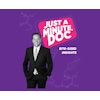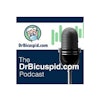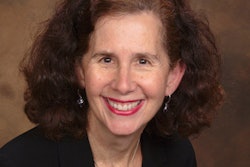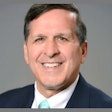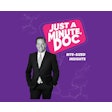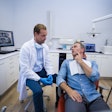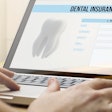
"Do you really need to know that I am taking aspirin?"
Well, yes, I do! We give our patients health updates at every preventive appointment, as well as reviewing and confirming their status at every restorative visit. I find it interesting when patients do not feel they need to let us know of a change in medications, even something as adding aspirin to their daily routine.
 Sheri B. Doniger, DDS.
Sheri B. Doniger, DDS.Any information we glean from our patients health history updates is always noted. Regardless of how you manage your practice, the patient writing on paper and including the information in their file or a business manager electronically adding the data to the chart, any change should be documented in the medical history or medication regimen. It is both a safeguard for our practices and a conversation starter with the patient.
We had a patient come in with a few new medications that led us to discover he had diabetes. When patients are "living" their systemic conditions, most of the time they do not think they are relevant to only getting their "teeth cleaned," even though we truly do more than "clean." When a medical procedure occurred several weeks or several months back, they truly may not remember.
This patient in question had major changes in his medical history since his last preventive visit. Not only was he on a prophylactic daily aspirin dose, he was treated for lymphoma in his legs and also major back pain. All information we potentially need to alter our treatment plan or treatment time. After he inquired about the need to let us know about his small dose of aspirin, we then were able to discuss the potential increase in bleeding for his scaling procedures. Since we knew about his back issues, we were able to shorten the procedures and fit them into his schedule more efficiently.
We have been collaborating with our medical partners since I have been in practice. We routinely contact physicians to discuss patient's current medications and the local anesthetic we offer. We will call physicians to secure clearance postsurgery. Additionally, we offer the patients information on medical alert jewelry. We want to be a comprehensive participant in the patient's well-being. Interestingly, most physicians are appreciative of the courtesy phone call. Perhaps it does not happen enough.
Physicians, especially surgeons, may be discussing postoperative care and including elective dental procedures, but patients may not be as receptive as one would hope, especially if they are receiving multiple instructions at one time. Occasionally, some patients are not receiving any instructions for scheduling dental treatment.
We need to link more with physicians to remind our mutual patients to let us know about any health changes, even if the patient feels it is nothing.
For many years, dentists and physicians have existed in separate worlds. Apparently, the teeth were never truly "connected" to the rest of the body, or an infection in the gingiva might not potentially affect the cardiac system. Now, with more focus on the oral-systemic connection, dentists are asserting their role in overall health patient management. The connection between diabetes and cardiac inflammation does exist. Inflammation from periodontal disease will affect the inflammatory markers around the body, including the rest of the vasculature.
Our patients will definitely benefit from this collaboration, and our medical counterparts should be treating us as equity partners in patients' treatment. So, no matter how mundane it seems to the patient, always check that medical history. They will know we are truly checking up on their total health.
Sheri B. Doniger, DDS, practices clinical dentistry in Lincolnwood, IL. She is currently vice president and president-elect of the American Association of Women Dentists and editor of the American Association of Women Dentists "Chronicle" newsletter. She has served as an educator in several dental and dental hygiene programs, has been a consultant for a major dental benefits company, and has written for several dental publications. You can reach her at [email protected].
The comments and observations expressed herein do not necessarily reflect the opinions of DrBicuspid.com, nor should they be construed as an endorsement or admonishment of any particular idea, vendor, or organization.
